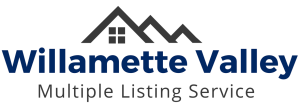When purchasing a home in Portland, Oregon, it’s crucial to understand the difference between closing costs and down payment. Both are important expenses in the homebuying process, but they serve different purposes and are calculated differently.
Down Payment
A down payment is the initial lump sum you pay upfront when buying a home. It represents a percentage of the home’s purchase price that you’re paying out of pocket, rather than financing through your mortgage loan.
The amount of your down payment can vary depending on several factors:
– Loan type
– Lender requirements
– Your financial situation
– The purchase price of the home
In Portland, as in the rest of Oregon, down payments typically range from 3% to 20% of the home’s purchase price. For example, if you’re buying a median-priced home in Portland for $502,000 (as of September 2023), a 20% down payment would be $100,400.
It’s worth noting that while a 20% down payment is often considered ideal (as it allows you to avoid private mortgage insurance), it’s not always necessary. Many homebuyers in Portland opt for lower down payments, especially first-time buyers or those using certain loan programs.
Closing Costs
Closing costs, on the other hand, are the various fees and expenses associated with finalizing your mortgage and completing the home purchase transaction. These costs typically range from 2% to 5% of the home’s purchase price in Oregon.
For a median-priced home in Portland ($502,000), closing costs could range from about $10,040 to $25,100. However, the actual amount can vary based on several factors, including the specific property, the type of loan, and the lender you choose.
Closing costs in Portland typically include:
– Loan origination fees
– Appraisal fees
– Title search and insurance
– Attorney fees (if applicable)
– Recording fees
– Underwriting fees
– Credit report fees
– Property taxes (prorated)
– Homeowners insurance premiums
– Private Mortgage Insurance (PMI) if your down payment is less than 20%[2][5]
Key Differences
1. **Purpose**: The down payment goes towards the purchase price of the home, reducing the amount you need to borrow. Closing costs cover the expenses related to processing your loan and finalizing the sale.
2. **Timing**: While both are typically paid at closing, you may sometimes pay certain closing costs, like the appraisal fee, before the closing date. The down payment is always paid at closing.
3. **Calculation**: The down payment is a percentage of the home’s purchase price. Closing costs are a collection of various fees, some of which are fixed and others that are based on the loan amount or home price.
4. **Negotiability**: While the down payment is generally non-negotiable (though you can choose how much to put down within your lender’s guidelines), some closing costs may be negotiable. In Portland’s competitive market, some buyers even ask sellers to cover a portion of the closing costs[1].
5. **Long-term impact**: A larger down payment reduces your loan amount, potentially leading to a lower interest rate and monthly payments. Closing costs, while necessary, don’t directly impact your ongoing mortgage payments.
Planning for Both Expenses
When budgeting for a home purchase in Portland, it’s crucial to account for both your down payment and closing costs. Here are some tips:
1. **Save aggressively**: Start saving early for both expenses. Remember, you’ll need funds for the down payment, closing costs, and potentially some reserves.
2. **Explore assistance programs**: Oregon offers various down payment assistance programs that might help cover some of these costs, especially for first-time homebuyers.
3. **Consider negotiating**: In some cases, you may be able to negotiate with the seller to cover some of the closing costs. However, in Portland’s competitive market, this might not always be feasible.
4. **Get multiple quotes**: Shop around for lenders, as closing costs can vary. Some lenders may offer credits to offset closing costs in exchange for a slightly higher interest rate.
5. **Understand your loan options**: Different loan programs have different down payment requirements. FHA loans, for instance, allow down payments as low as 3.5%, while conventional loans might require more.
In conclusion, while both down payments and closing costs are significant expenses when buying a home in Portland, they serve different purposes. The down payment is your initial investment in the property, while closing costs cover the various fees associated with processing your loan and finalizing the sale. By understanding these differences and planning accordingly, you’ll be better prepared for the financial aspects of your home purchase in Portland, Oregon.


 Facebook
Facebook
 X
X
 Pinterest
Pinterest
 Copy Link
Copy Link






